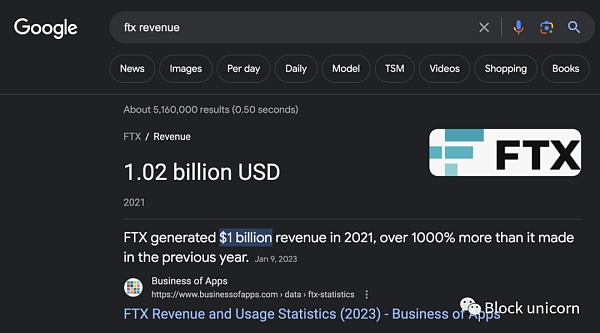Trend prediction: upcoming events in 2020
Original: Share Finance Neo
Another year has passed.
Compared to the madness of 2017 and the panic of 2018, 2019 seems to be a bit unsatisfactory. In the past year, we have seen the strong entry of traditional large-scale fintech companies, witnessed the digital currency hopes ignited by central banks in various countries, and also discovered many star projects and new flashpoints like DeFi.
However, 2019 seems to be just the beginning of this. Facebook's Libra is far from competing. Telegram's TON blockchain has been postponed due to SEC restrictions. The central bank's CBDC is eager to come out in the new year. Polkadot, Fetch.ai, Dfinity , Hashgraph, Near Protocol, Spacemesh, Solana and other new projects have not become a "killer" trend. Even the well-known DeFi this year has only just begun. The strong entry of Synthetix on the DeFi ranking list also proves that this emerging field Ups and downs.
- Ten important advances in cryptocurrency in 2019
- Blockchain practitioners: 2019 is too difficult for me
- SheKnows Year-end Ultimate Debate | Can Big Companies Get Into the Start?
The follow-up to all of this is put in 2020.
It's time again. It's time to remove the dust from the crystal ball, throw away the last turkey, and look into the near future to see what major news we will all talk about in 2020.
1.National CBDC will appear one after another
In 2019, several countries have announced that they are considering establishing their own digital currency, which has caused a lot of controversy. At present, more than a dozen countries, including China, the European Union, France, Singapore, Ghana, and the Marshall Islands, have successively launched central bank digital currency pilots.
This year, it seems that this situation will accelerate. Countries such as the UAE, Japan, Sweden, Russia, Estonia and France have announced plans to issue digital currencies in their respective countries. In France, for example, they want to start laying the groundwork by the end of the first quarter of 2020.
Regarding the urgency of the central bank's launch of the CBDC, some people said that, on the one hand, it is because of the catalytic effect of Facebook's launch of Libra, and on the other, because the implementation of digital currencies in national institutions can improve a series of efficiency.
In this series of forthcoming CBDCs, some people think that China may preemptive measures. Cryptocurrency investment agency Outlier Ventures predicts that in 2020, China may officially launch Digital Currency Electronic Payment (DCEP), and its license will be granted to mainstream platforms of choice by hundreds of millions of users including Alibaba, Baidu and Tencent. As a distribution channel. By the end of 2020, more than 500 million Chinese will use services connected to the DCEP network.
2. Joining of traditional large enterprises
In 2019, we have seen large business giants such as JP Morgan Chase, Walmart, AirAsia, Mitsubishi and Tencent all exploring digital assets. In 2020, this trend will further expand.
In the existing chain-related cases of enterprises, the more noticeable is komgo SA, which is a group of companies such as ABN AMRO, BNP Paribas, Citi, Credit Agricole Group, ING, Rabobank, and Shell, among others, are building a blockchain based on Ethereum.
And other things like Nike's digital shoe concept, Fidelity's digital asset custody + digital asset trading plan, Wal-Mart's blockchain issue of digital currency patents, etc., are likely to usher in new progress in 2020.
Greg Forst, marketing director of the Factom protocol, said: "As blockchain technology moves to enterprise production, we are likely to see a huge expansion. We will start to see the value that blockchain generates in the production environment."
3.Bitcoin halved
About every 4 years, the value of the mining network's mining returns will be halved, and the next "halving" will be in May this year.
Bitcoin halving is a major event in the currency industry. Because this means that the production of Bitcoin will be reduced, the reward will be reduced from 12.5 BTC to 6.25 BTC, thereby reducing the overall inflation rate of the entire network.
By then, Bitcoin's inflation rate will fall from 4% to 2%, which will be the same as some of the world's most famous fiat currencies. Although many Bitcoin observers believe that Bitcoin will not have much impact on the price of Bitcoin, it does mean that as the power to mine Bitcoin is halved, the influence of miners on the Bitcoin network will weaken.
Not only that, what really makes people excited is that people hope that this event can ignite the hope of the Bitcoin bull market. You must know that in the last two rounds of Bitcoin mining rewards (2012 and 2016), the price of Bitcoin All have risen (though not necessarily directly).
It is worth mentioning that bitcoin halving may be the life and death of mining. According to a recent report on the bitcoin mining network released by digital asset management company CoinShares Research, bitcoin mining hashing power has been almost in the past six months. Doubled, and miners have to phase out old equipment when computing power continues to increase and rewards are about to be halved, which means miners will be unable to recover costs unless the price of Bitcoin rises.
4.Ethereum 2.0
Accompanying Bitcoin halving is Ethereum 2.0.
Currently, Ethereum is entering the second phase of its grand blueprint. The next iteration of Ethereum has two broad goals: introducing a POS consensus mechanism, terminating the use of POW by the network, and introducing long-awaited shards to help improve the speed and throughput of the network. But as we saw in previous Ethereum upgrades, its launch will be prudent.
ETH 2.0 will be deployed and tested in 7 different phases in a few years. Although many are still in their early stages, Phase 0, also known as Beacon Chain, will be released in the first quarter of this year. The purpose of this initial phase is to publish a beacon chain (called Beacon) that runs in parallel with the main proof-of-work chain of the network. The goal is to give developers the opportunity to stimulate and stress test the network without messing up the increasingly complex functions and features on today's major networks. As the "heart" of Ethereum 2.0, the beacon chain, once it is successfully launched, the rest of the work on ETH 2.0 will make steady progress.
It is worth mentioning that today, the Ethereum mainnet has successfully activated the Muir Glacier upgrade, delaying the difficulty bomb (about 600 days), and the next upgrade of Ethereum "Berlin" is also planned to launch in June this year.
5.DeFi will usher in adulthood
DeFi's 2019 is star-studded. In November last year, Ethereum locked more than $ 400 million in decentralized financial applications, and the number of DeFi registered addresses grew by more than 1600% in a year. Startups like the Compound Fund received from companies such as Andreesen Horowitz Multiple rounds of financing. Many people believe that 2020 will be another important year for blockchain-based financial software.
At present, crypto investors have few options other than holding assets and hoping to obtain long-term returns. However, due to the success of companies such as MakerDAO and Compound, coupled with growing interest in DeFi for large exchanges such as Coinbase, CDPs are Companies provide a way for them to increase their holdings while still using some of them for purchases and payments.
One of the key areas where DeFi is expected to grow is around the diversity and complexity of financial instruments, namely synthetic assets. A Nasdaq report predicts that debt-backed bonds (CDPs), a financial instrument that allows virtual assets to be used as collateral to obtain loans, will become a big business.
In the field of synthetic assets, it is necessary to mention the dark horse Synthetix. As a decentralized synthetic asset issuance protocol based on Ethereum, Synthetix has captured a US $ 170 million lock-up value for itself through its Token economic model, and in the short term In a short year, it crowded out Dharma and surpassed Compound to become the second project in DeFi.
In addition, it should be noted that Bitcoin assets on Ethereum invade DeFi, such as wBTC, zBTC, imBTC, etc. BTC has better liquidity and stability than ETH, so can the bitcoin assets mapped on the Ethereum chain replace the native currency ETH, become the preferred collateral object, or become a non-negligible part of DeFi, it is also A major focus in the field of DeFi in 2020.
6.Libra may launch in 2020
Since launching the white paper, Libra has gone through too many twists and turns. Questions from Congress, withdrawal of members, amendments to the White Paper, etc., all indicate that this project that is stirring up the currency circle is facing great resistance. However, it turned out that Libra was slowly moving towards its stated goal.
At the end of December 2019, the Libra official blog released the second version of the Libra Core roadmap.
The roadmap states that developers will focus on three areas. First, the developers of Libra delivered mainnet functions in order of priority. Second, they will focus on defining start-up criteria from the pre-mainnet of the Libra to the mainnet. The final step involves educating the Libra community and making them valuable contributors to the Libra project.
The blog claims that developers are currently working on the complete Libra protocol architecture documentation and are finalizing external APIs based on community input. The goals of this second edition of the roadmap are to implement the roadmap, define the release requirements for the first edition, modify the pre-mainnet approach for non-technical personnel, and increase community participation.
Shortly before that, Libra also revised the white paper, in which the most critical change is that interest received from reserve assets will not be used to pay dividends to investors. This change in Libra has been interpreted by industry insiders as catering to regulation.
On December 19, 2019, according to Reuters, Libra Association member Patrick Ellis said that although the strategy has not been finalized, Libra will be launched in 2020, and the scope of deployment depends on negotiations with regulators.
7. The entry of regulators
According to a report from blockchain venture capital firm Outlier Ventures, the most significant event in 2020 is "liquidation," where regulators will "cleanse" the crypto market.
Outlier Ventures predicts that in 2020, more than 50% of Tokens will be removed from the market. Besides the market elimination, the power of supervision cannot be underestimated.
In fact, in addition to the project party, the cryptocurrency exchange may also become one of the key clearing objects in 2020.
Take domestic supervision as an example. Since the collective study of the central government on October 24, regular troops have begun to enter the field. What followed was a rigorous shot at regulation.
According to statistics, in just two months, more than 20 cryptocurrency exchanges, including Bigogo, GGBTC, Btbull, TRSU, Newton, IDAX, HB.top, Biger and other cryptocurrency exchanges, have ran their way, or have difficulty withdrawing coins, or "benign liquidation ", Or stop serving users in mainland China.
And in 2020, the regulatory power may be further strengthened.
We will continue to update Blocking; if you have any questions or suggestions, please contact us!
Was this article helpful?
93 out of 132 found this helpful
Related articles
- In Nordic Blockchain Week, I felt the power of the winter
- The market segment suitable for blockchain should have these seven attributes
- Lighthouse: Lessons Learned from Testnet Collapse
- Will there be "explosive applications" for blockchain in the future?
- Essentials of "2019 Global Blockchain Industry Application and Talent Cultivation": Four levels, insight into industrial applications
- 12 prediction trends you need to watch out for if the bull market hits in 2020
- 2020, Bitcoin mining is about to usher in the year of life and death






